Far From The Madding Crowd, film review: Carey Mulligan’s Bathsheba would fit in better in The Hunger Games
Thomas Vinterberg's take on Thomas Hardy's novel is only vivid when Mulligan is onscreen
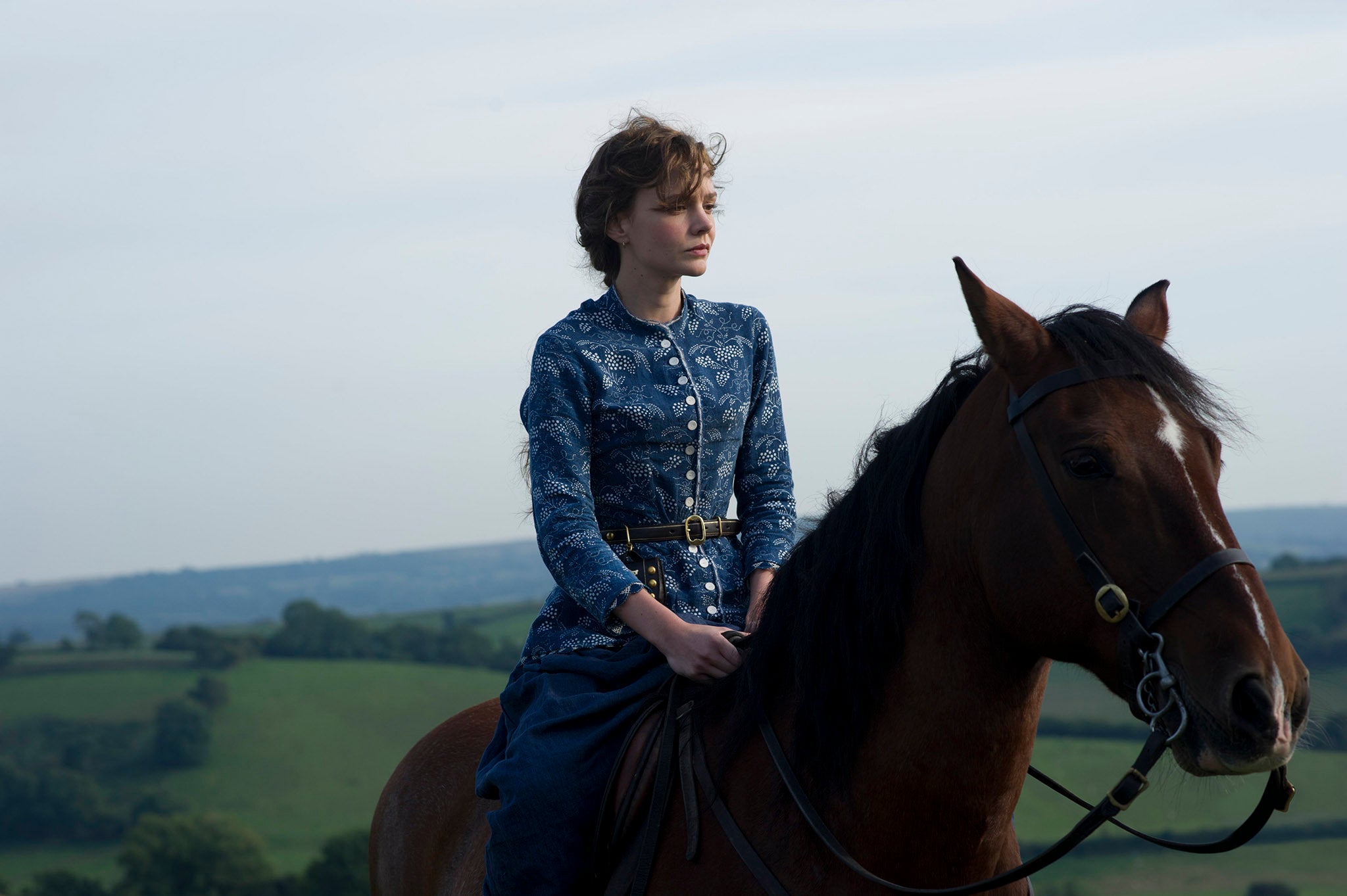
Far From The Madding Crowd may be set in late 1860s “Wessex” but one of the fascinations of Thomas Vinterberg’s new adaptation of the Thomas Hardy novel is the light it casts on our own preoccupations. The publicity hasn’t been slow to remind us that the story’s protagonist, Bathsheba Everdene (Carey Mulligan), inspired the Hunger Games’ author Suzanne Collins to make her heroine Katniss into an ‘Everdeen' as well.
During the early scenes, Mulligan’s Bathsheba looks as if she might be on leave from The Hunger Games. She is shown riding a horse through the countryside. She may not have a bow and arrow but there is something Katniss and warrior-like about her.
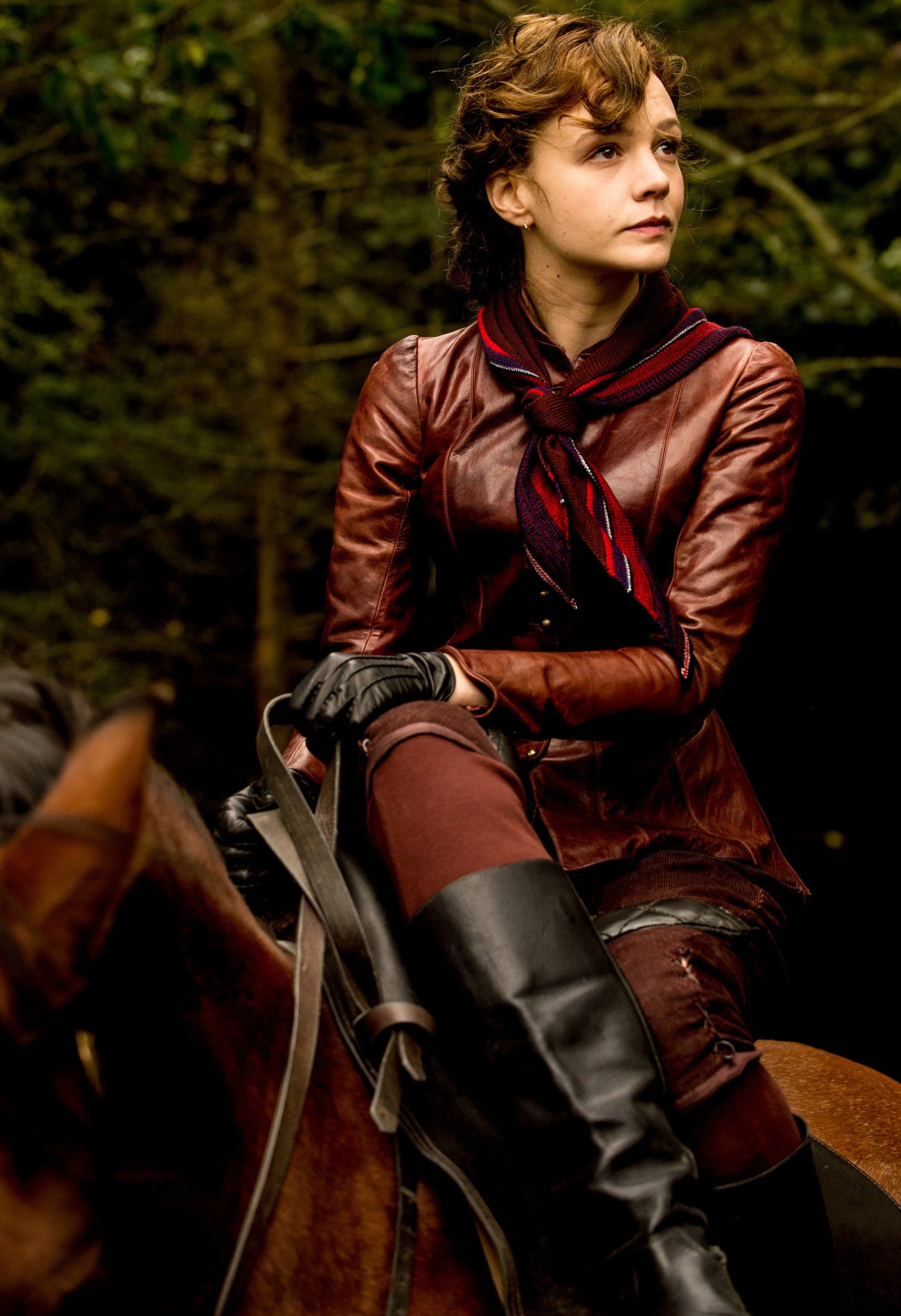
We are made aware immediately that she doesn’t need men to protect her. She is too used “to being on her own,” “too wild (always has been”) and “too independent” for her potential suitors. She is by far the most vivid character in the film and that is ultimately its problem.
Everyone else seems a little wan by comparison. “If I’d ever want a husband, I’d want someone to tame me and you would never be able to do it,” she tells one of the suitors. The men flounder in her wake. “It is difficult for a woman to define her feelings in a language made by men chiefly to express theirs,” she declares but even if she is a woman farmer and landowner in a rigidly patriarchal society, she is by far the film’s most articulate figure. Her suitors seem tongue-tied by comparison.
Mulligan doesn’t just get the best lines and the most dramatic close-ups. She is given almost as many changes of costume as Nicole Kidman in Grace Of Monaco. Thomas Hardy was writing long before the days of Zara and Topshop but judging by Mulligan’s ever-changing wardrobe, Wessex must have had its share of high street retailers. We see her on horseback looking like Calamity Jane, in all sorts of bonnets and dresses of every colour.
Danish director Vinterberg was one of the original “little brothers” behind Dogme 95, the 10 point manifesto for low budget filmmaking drawn up by partner in mischief Lars Von Trier the mid 1990s. His version of Far From The Madding Crowd is handsomely and sensitively made. The film boasts a fiery and mercurial performance from Mulligan but it is a very long way removed from the pared down intensity of Vinterberg’s Dogme roots. The director is surprisingly conventional in his approach to his material. He is very fond of crepuscular lighting and of beautifully composed shots of the farm workers in the fields.
The film comes with the trappings of the best costume dramas. What we don’t always get a sense of is the suffering and desperation of the men around Bathsheba or of her own unhappiness. There is little of the searing emotional charge here found in such family-based Vinterberg dramas as Festen and The Hunt.
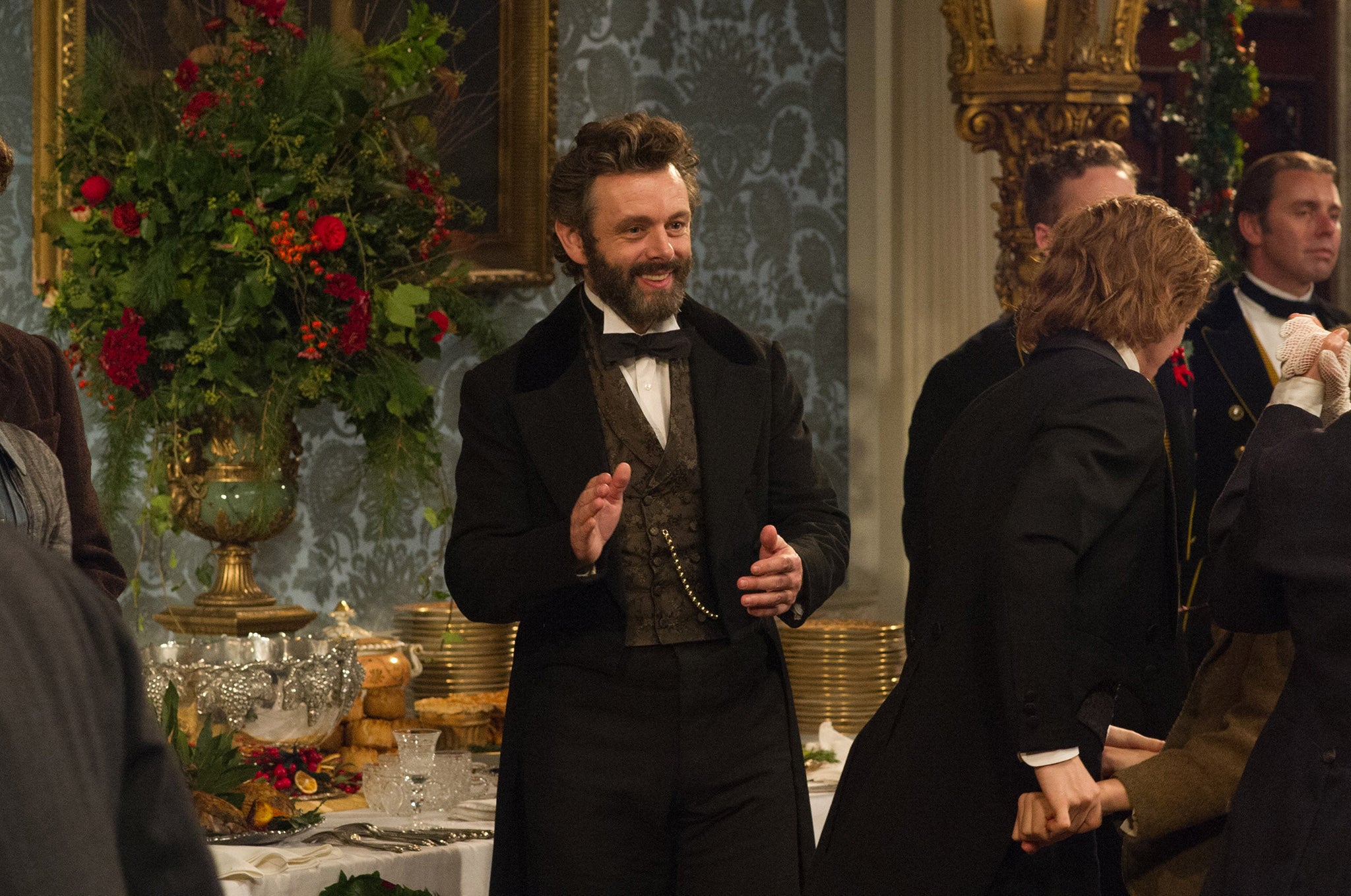
The film suffers from its relatively modest length. It clocks in at a little under two hours - and is thus nearly an hour shorter than John Schlesinger’s recently re-released 1967 film of the same novel starring Julie Christie. This leads to contraction in the plotting. Some characters are seen only fleetingly. For example, the film skirts over the sub-plot involving Fanny Robin (Juno Temple.) We are given little sense of what drives Sergeant Troy’s infatuation with her and even the scene in which she goes to the wrong church on the day of her wedding is rushed. Temple is very affecting but her role is turned into little more than a glorified cameo.
Mulligan’s Bathsheba is such a formidable, self-reliant figure that it is hard to credit she would allow herself to be taken in by Tom Sturridge’s charming but lightweight Sgt Troy. In the scene in which he eventually cuts a lock of Bathsheba’s hair, telling her not to flinch as he lunges with his sword at either side of her face, Mulligan manages to make us believe in Bathsheba’s growing erotic fascination with the soldier in his scarlet tunic. What seems far less plausible, given the sheer force of her personality, is that she would marry such a popinjay as a result.

Watch Apple TV+ free for 7 days
New subscribers only. £8.99/mo. after free trial. Plan auto-renews until cancelled

Watch Apple TV+ free for 7 days
New subscribers only. £8.99/mo. after free trial. Plan auto-renews until cancelled
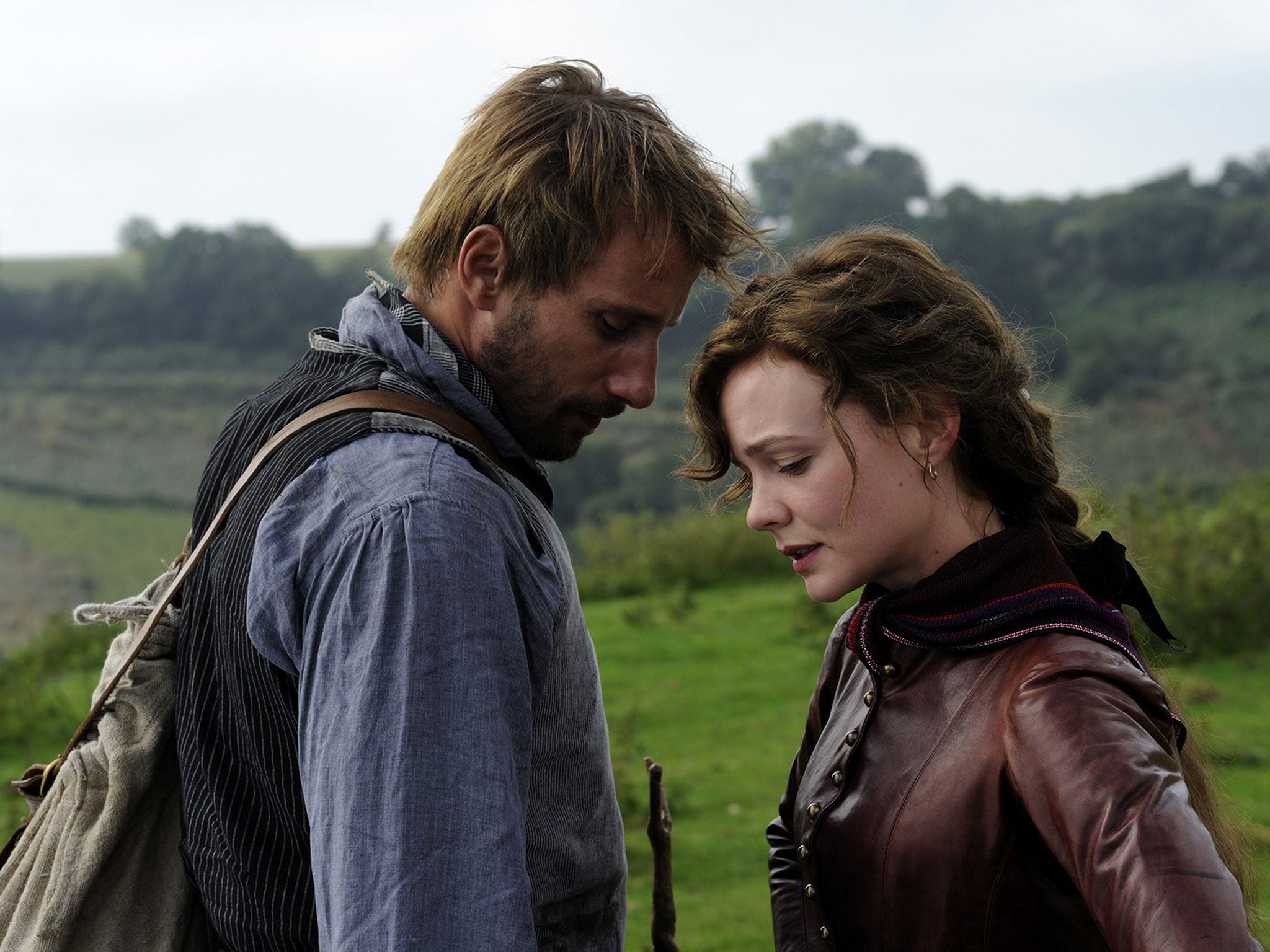
The filmmakers are so busy hurrying along the storyline that many of the actors offers sketches of their characters rather than full portraits. Michael Sheen gives a typically subtle and nuanced performance as William Boldwood, the wealthy neighbouring farmer who becomes obsessed by Bathsheba after she sends him a Valentine’s card as a joke. However, with only limited screen time, he can’t come close to matching the sense of desperation and utter devastation that Peter Finch brought to the same role in the Schlesinger film.
The film is at its strongest in the scenes between Bathsheba and Gabriel Oak (Matthias Schoenaerts) As played by Schoenaerts, Gabriel’s accent may have as much Flemish as Dorset in it, but the Belgian is a brilliant actor who here brings a quiet gravitas to his role. Whether he is putting out fires, protecting the grain from storms or sharing his earthy wisdom with his mistress, he never loses his calm. He is besotted by Bathsheba but is able to stand up to her. She, in turn, is won over by his endurance and common sense. As she confides early on, she doesn’t think she loves him but she does “rather like” him.
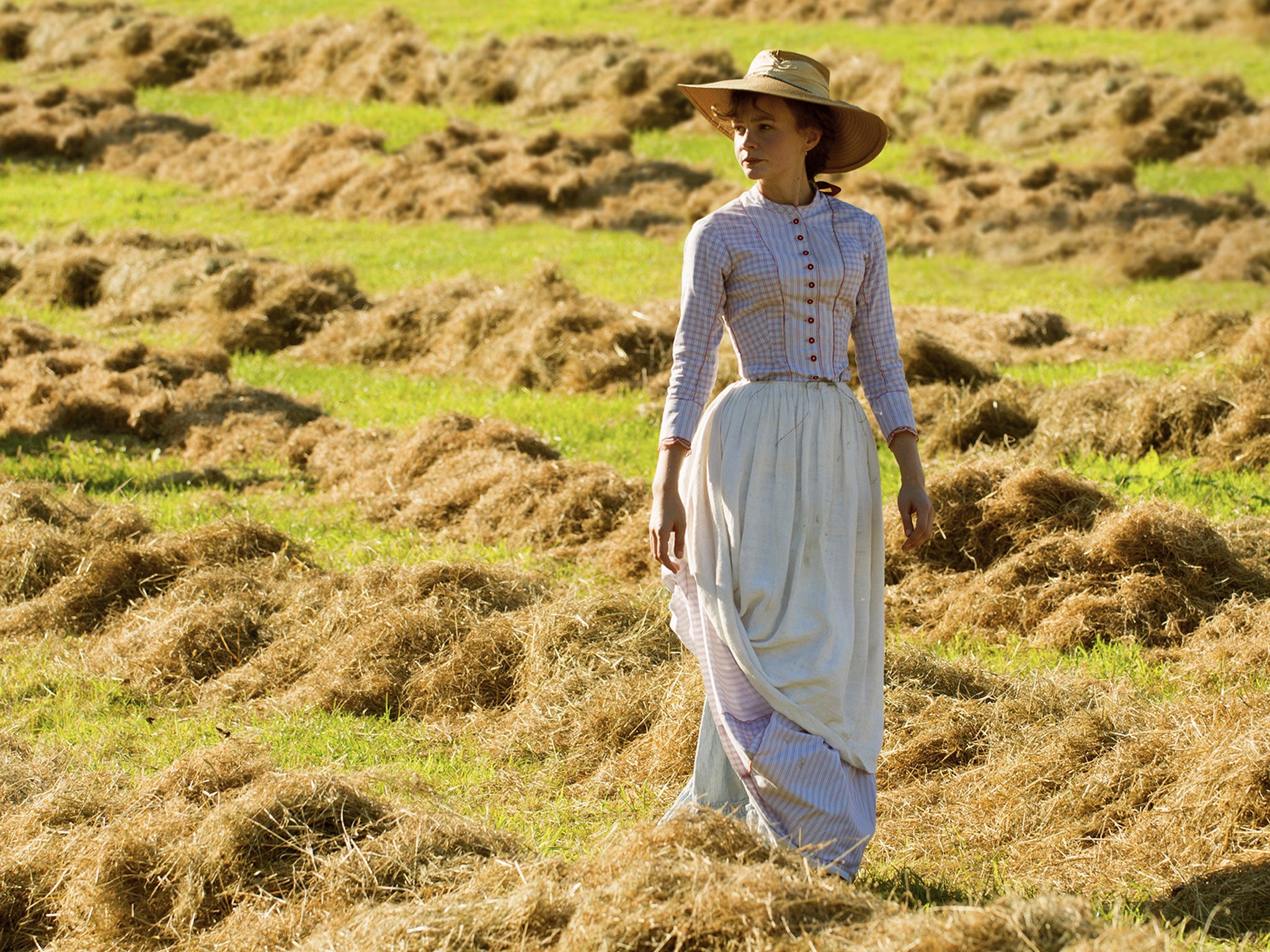
As a heady melodrama, “Thomas Hardy’s classic love story” as the posters call it, this version of Far From The Madding Crowd doesn’t stir the emotions in the way that might have been anticipated. Nor does it offer us radical new insights into a story that has been dramatised for film and TV several times before. Instead, Vinterberg offers us a thoughtful, well crafted costume drama - but one which relies almost entirely on Mulligan to spark it into life.
Join our commenting forum
Join thought-provoking conversations, follow other Independent readers and see their replies
0Comments